Balfour Declaration, 1917
The British Foreign Ministry promises to work toward a Jewish national home in Palestine with no harm to non-Jewish populations or to Jews living elsewhere who might want to support a Jewish home.
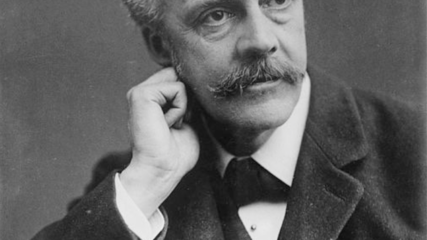
The British Foreign Ministry promises to work toward a Jewish national home in Palestine with no harm to non-Jewish populations or to Jews living elsewhere who might want to support a Jewish home.

With intentioned ambiguity, Britain asserts that its goal in Palestine is not to make it wholly Jewish or subordinate the Arab population. Self-determination is not promised. Britain wants to remain an umpire between the communities. Naively, it thinks it can control communal expectations and keep the peace.
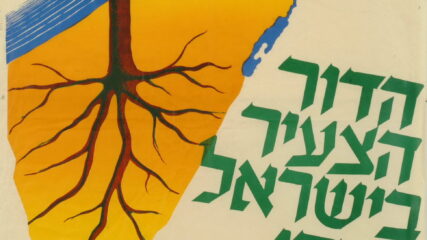
JNF meeting minutes and other statements show the strategic approach to Jewish land purchases throughout the British Mandate period.

With more Arab sale offers than funds for purchases, Zionist leaders decide on strategic priorities and designate areas around Haifa, Jerusalem-Jaffa road, and the Galilee near headwaters of the
Jordan River.
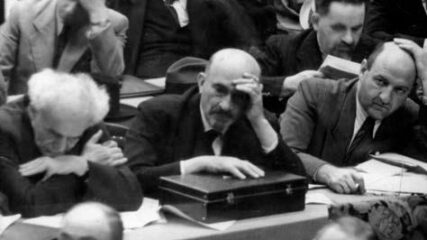
Zionist leaders—David Ben-Gurion, Chaim Weizmann and Eliezer Kaplan—learning of the British intent to limit severely the Jewish national home’s growth. Increasingly, they are also aware of the German government’s hostilities towards European Jewry.

In New York, urging American (Jewish) support, Ben-Gurion proclaims the eventual establishment of a Jewish state.
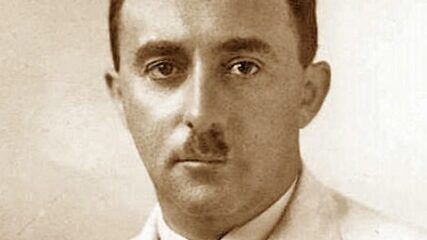
Moshe Sharett urges the British and Americans to open Palestine to unimpeded Jewish immigration from Europe.
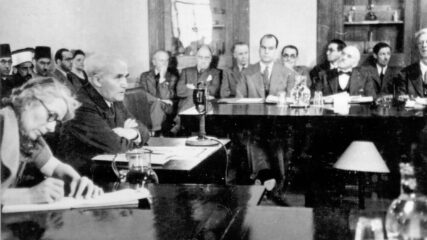
The report of a joint U.S.-British committee on the situation in Palestine and the fate of European Jewish refugees fails to offer solutions the British government will accept but does deliver vital data and insights on the situation between Arabs and Jews in the Land of Israel.

The Israel State Archives has collected government documents on the history of Israel’s interactions with the Beta Israel through the first operations to facilitate their emigration from Ethiopia in the 1980s.

Jews worldwide are given the right to come to Israel and become citizens.
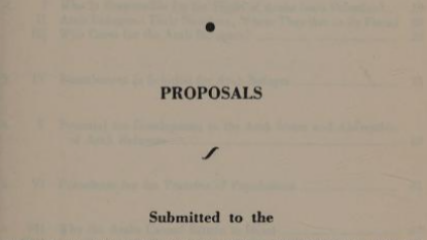
This report submitted to the United Nations at the end of 1951 notes that “some one million Jews have become the victims of accelerated antiSemitism” since 1948 in the Muslim countries of the Arab League and North Africa, “communities which have existed for thousands of years.” The report analyzes the situation for Jews overall and explains restrictions and oppressive measures country by country.
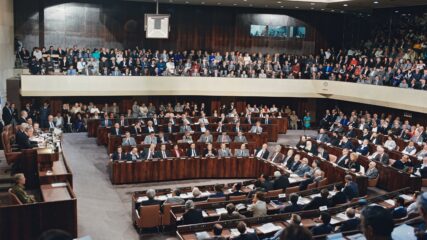
With no constitution, citizen rights and government responsibilities are stated in 14 laws. The Judiciary is covered in the Seventh Basic Law, February 1984.
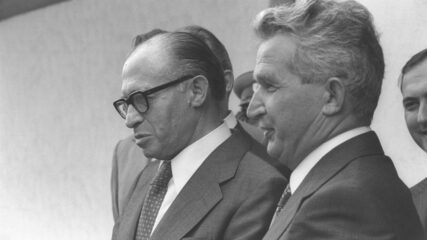
Unknown to the Carter administration and one month before it issued the US-Soviet Declaration to convene an international Middle East Peace Conference, Prime Minister Begin tells the cabinet that he learned from the Rumanian president that Sadat wishes to have Israeli and Egyptian representatives meet in secret talks. That bi-lateral Dayan -Tuhami meeting takes place on September 16. Begin refers to advanced drafts of proposed treaties between Israel and each Arab state; he presents details about Rumanian Jewish immigration to Israel.